detail profile toms auni c5 86 c5 a1
Peran Yang Di Mainkan Toms Auniņš
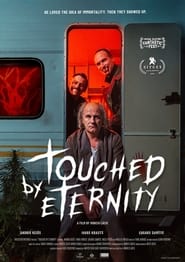 Selfproclaimed cryptocurrency expert Fatso is a...
Selfproclaimed cryptocurrency expert Fatso is a...Touched by Eternity 2025
Self-proclaimed cryptocurrency expert Fatso is a middle-aged curmudgeon frittering away his days with video games and conspiracy theory videos. Obsessed with the concept of eternal life since childhood, Fatso experiments with various quack theories in the hopes of becoming immortal, despite his miserablism. When Egons and Carlos inexplicably appear outside of his remote woodland trailer, asking for an invitation inside, they bring glad tidings that he has recently been selected as “the chosen one.” Appealing to his nature as a “cowardly, passive, antisocial sluggard,” who has squandered his humanity so thoroughly that the transition to undead would prove practically seamless, the friendly duo make promises of a new, more fulfilling life as a vampire.
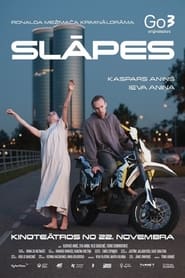 An oilstained motorcycle enthusiast seeks a...
An oilstained motorcycle enthusiast seeks a...Thirst 2024
An oil-stained motorcycle enthusiast seeks a place in the new world of green energy. His wife, a strong supporter of the philosophy of sustainable development, suffers from kidney failure. The spouses are no longer united by common values, but by the serious illness. Mechanic looking for ways to cover the cost of a kidney transplant gets sucked into the world of crime. At the same time, his wife Anna is developing a radically different view of the world around her. Will the heroes be able to find their way to each other?
 Ralf 35 is saving his relationship by...
Ralf 35 is saving his relationship by...Banana Boat 2024
Ralf, 35, is saving his relationship by taking his girlfriend’s son on a boat trip with an aim to establish himself as a father figure. Not a wildlife expert himself, he also takes on board his office buddy, and it soon becomes clear that this unpredictable, flamboyant womaniser is a world away from being an example to look up to. As Ralf tries to protect the boy from his friend's unsophisticated look on gender and sexuality, soon they are confronted with the realities of the sharp winding river and the roughness of Latvian nature.
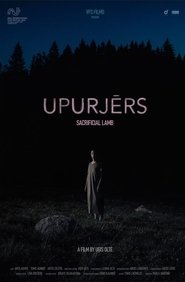 In this allegory about paradise lost...
In this allegory about paradise lost...Sacrificial Lamb 2023
In this allegory about paradise lost, Ildze yearns to find peace and fulfilment by moving from the city to the countryside. However, her thoughts are consumed by the illness of her child, her estrangement from her husband and his absence. In the meantime, Ildze’s grief is enveloped by nature’s promise of comfort, which never arrives. She tries to understand where to find the beginning of the cycle of sacrifice and where to find its end. And who is her victim, or is it herself?
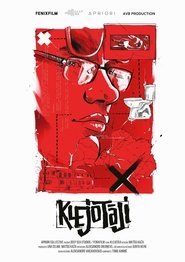 Through the prism of three distinct...
Through the prism of three distinct...The Wanderers 2020
Through the prism of three distinct characters, the 24-year-old director conveys an intimate and sensitive portrait of his own generation, wanderers looking for their place in the new and uncertain world. Dancer Tanya moves to Mississippi where she finds love with a paraplegic wheelchair basketball trainer who is more than 20 years her senior. App developer Tomass abandons the life he had before and becomes a world-travelling digital nomad. Avant-garde publisher Valters collects toilet seats in a poetically performative attempt to overcome past trauma.
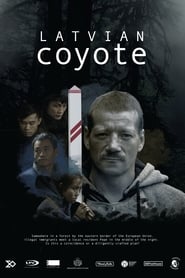 An absurd game of finding happiness...
An absurd game of finding happiness...Latvian Coyote 2019
An absurd game of “finding happiness” is being played by local Latvian coyotes* and illegal immigrants on the Russian and the European Union border. It is a game with no winner – all participants are driven to play by the sense of despair. While one side leaves home and undertakes a perilous journey to the other side of the globe, hoping to spend the rest of their lives in a free country, the other side risks their freedom to earn a chance to stay right where they are, in their homeland. *coyote – someone who smuggles illegal immigrants
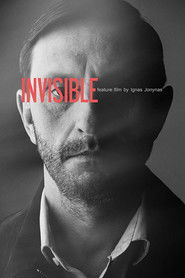 Jonas Dainius Kazlauskas pretends to be...
Jonas Dainius Kazlauskas pretends to be...Invisible 2019
Jonas (Dainius Kazlauskas) pretends to be blind and enters a TV dance contest, where he meets his attractive dance partner Saule (Paulina Taujanskaite). Soon they become the show's most popular contestants. While the whole nation thinks that Jonas is blind, Vytas (Darius Bagdziunas), an old acquaintance of Jonas, is released from prison. As reminders of the past keep creeping up on them, Vytas is suppressing contradictory feelings - to seek revenge or forgiveness in such a manipulative world - for sins that were and for sins to be made.
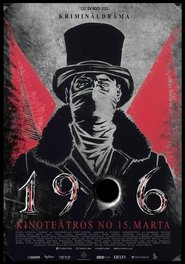 A year has passed since the...
A year has passed since the...1906 2019
A year has passed since the turbulent events of the 1905 revolution. The secret police has almost eradicated the network of social democratic fighters. Only one group continues fighting and a bold assault on a factory cash desk is being planned. A low ranking fighter Grey is assigned to lead the operation. Meanwhile, Grey starts an affair with a young poetess Violet and gets to know the flamboy-ant crowd of decadent artists and writers. Inspired by Violet Grey takes a look at revolution from a different perspective. Meanwhile Violet gradually gets involved in the dangerous world of revolutionary fighters. November 1906 in Riga is still remembered as a month of crazy bohemia and violent terror.
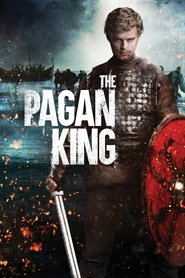 On his deathbed the reigning king...
On his deathbed the reigning king...The Pagan King 2018
On his deathbed, the reigning king bestows power to an unexpected heir who must find strength within himself to unite his people against the violent crusades which threaten their freedom.
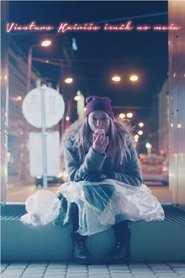 A tragicomic tale about the relationship...
A tragicomic tale about the relationship...Viestur Kairish Comes Out Of The Woods 2018
A tragicomic tale about the relationship of Guna and the twice older writer Gints. Guna has lost her job, but Gints hasn’t written anything in years. Whilst running away from an unsatisfactory relationship and the lack of creative self-expression, Guna gets obsessed with the theatre performance “Odyssey” by the famous director Viestur Kairish and begins to mix reality with theatre. Guna tries to start a new life, but her fantasy world doesn’t allow her to be a part of reality anymore.
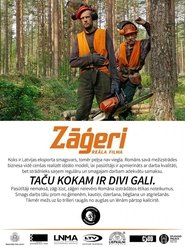 They fell trees in the forest...
They fell trees in the forest...Lumberjacks 2017
They fell trees in the forest, work in brigades and live in trailers or empty apartments far from home. The work is heavy. During moments of respite, the loggers like to sit on the stumps and talk about life. And about women – those waiting at home, or those they imagine.
 The closed microcosm of garage coops...
The closed microcosm of garage coops...The Garages 2016
The closed microcosm of garage co-ops, where the socio-economic environment has blended with personal space, provides a step back in time. Men are still boys, but their tinkering is both the trade and hobby of individual entrepreneurs, since self-exploitation as leisure time activity is a time capsule where neoliberalism has enclosed the postindustrial proletariat. Inventors, geniuses, crazy scientists, and men with golden hands - you will find them in garages.
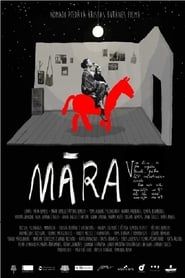 This creative documentary tells the story...
This creative documentary tells the story...Māra 2014
This creative documentary tells the story of women in art – what she has to sacrifice in her personal life and what choices have to be made in order to gain success in her career. The film explores life of artist, by following theatre director’s Mara Kimele's fighting relationships with her despotic grandmother Anna Lacis (widely known as Asya, whose life is closely tied to the names of Walter Benjamin and Bertolt Brech), cynical son Peteris (who is played by an actor) and work while she stages F. Dostoevsky's “Crime and Punishment”. Every character of film is an act. But does that make them any less real? And what is real in the world of art? Apart from its human character's, the film also has an animated one – the horse, who came into life through the first letter Mara wrote to her grand mother and has been following her ever since.
 A business executive lays off hundreds...
A business executive lays off hundreds...The Man in the Orange Jacket 2014
A business executive lays off hundreds of harbor workers after they go on strike. He and his wife plan to escape the stress by taking an Italian vacation. On the evening before the trip, one of the fired workers, dressed in an orange harbor worker safety jacket, slips into their home. Although his immediate actions reveal a murderous intent, revenge is only the initial step.
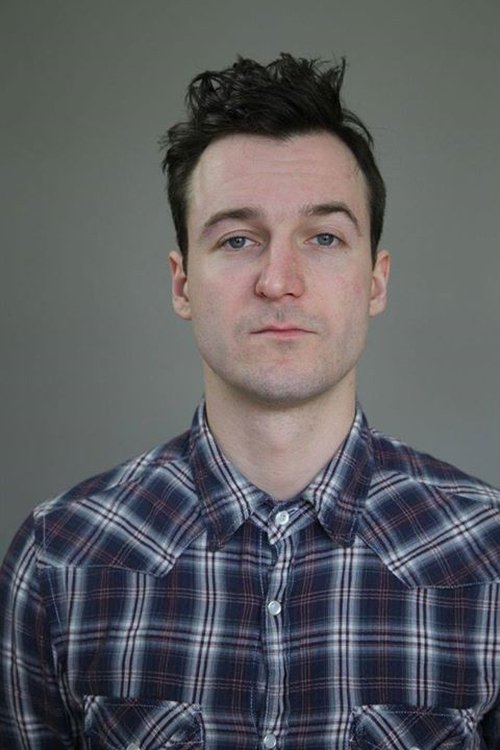
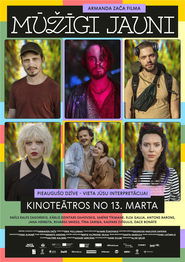 A coming of age story about...
A coming of age story about...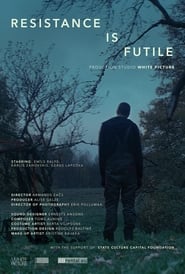 Two young men come to visit...
Two young men come to visit...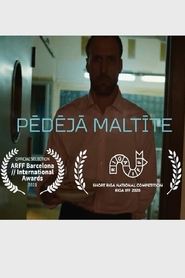 A bureaucrat who has just declared...
A bureaucrat who has just declared...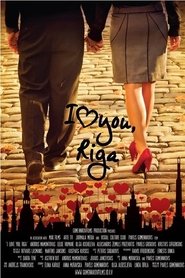 13 stories about love set in the...
13 stories about love set in the...